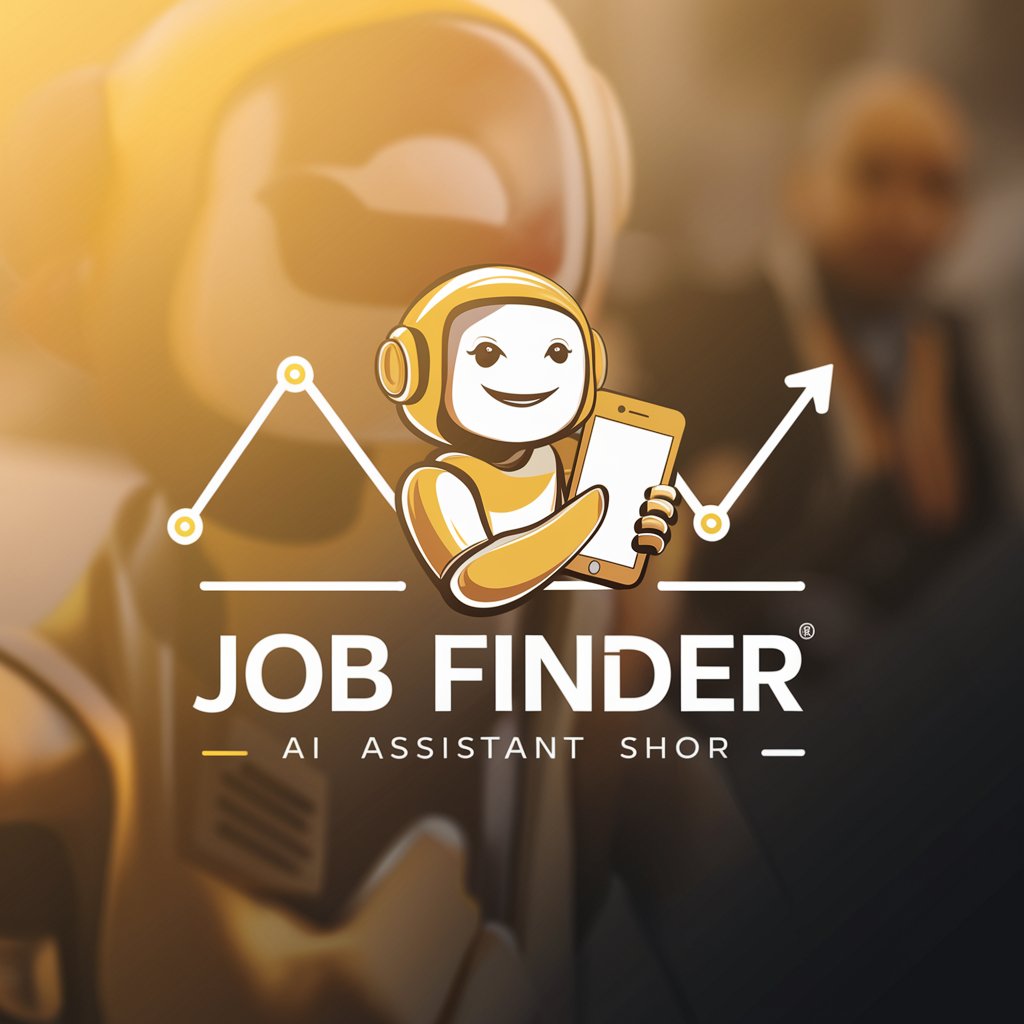
Job Search AI - AI job search engine

Fast and Reliable Job Searches on LinkedIn, Indeed, Glassdoor, + Others on Google for Jobs in Real-Time. 🚀🤖
AI-powered job search and insights
Find me a marketing job in my location.
What is the average salary for a computer scientist?
Find me a retail job in my location.
What exactly can Job Search AI do?
Get Embed Code
Introduction to Job Search AI
Job Search AI is designed to simplify and accelerate the job search process by leveraging real-time data and advanced search capabilities. It functions as an intelligent assistant that can quickly gather, filter, and present job listings based on user-defined criteria, such as job title, location, date posted, and more. The system integrates with real-time job databases and offers personalized results, helping job seekers avoid time-consuming manual searches. It can also provide details like estimated salaries, job descriptions, and application instructions directly within the chat interface. For example, if a user is looking for 'remote software engineering jobs posted in the last week', Job Search AI can instantly return a curated list of opportunities that meet those specifications. This allows users to make more informed decisions about their career options and apply more effectively. Powered by ChatGPT-4o。

Core Functions of Job Search AI
Job Search by Title and Location
Example
A user searching for 'Marketing Manager' positions in 'New York City' can input these parameters and get a list of current job openings in that area.
Scenario
A recent college graduate looking to start their career in marketing can input specific job titles and geographic areas, getting tailored job recommendations.
Date-based Job Search
Example
A professional looking for roles that have been posted recently can set filters for 'jobs posted in the last 24 hours' or 'last 7 days'.
Scenario
An experienced IT consultant aiming to secure a new contract position could use this feature to ensure they are only seeing the most up-to-date opportunities.
Salary Estimation
Example
A user can ask for estimated salary information for a job like 'Data Analyst' in 'San Francisco'.
Scenario
Someone considering a career switch into data analysis may want to compare salaries in different cities or industries to make an informed decision.
Job Detail Extraction
Example
Users can request detailed job descriptions, including qualifications, responsibilities, and application deadlines for a specific job listing.
Scenario
A job seeker interested in a 'Product Manager' position can get all the relevant details of a specific listing without having to navigate external websites.
Search Filters
Example
A user looking for remote-only jobs can set a filter for 'remote work' when searching for software development roles.
Scenario
A digital nomad looking for remote jobs in tech can fine-tune their job search to only show fully remote roles.
Ideal User Groups for Job Search AI
Job Seekers
Individuals actively looking for employment, including recent graduates, professionals seeking career advancement, and those looking for new opportunities. Job seekers benefit from real-time, tailored job listings and the ability to quickly apply to roles that match their skill set.
Freelancers and Contract Workers
Freelancers who rely on short-term contracts can use Job Search AI to find freelance gigs and temporary roles, especially with the ability to filter jobs by date posted, ensuring they access the latest opportunities.
Career Switchers
People considering a change in their career path can leverage Job Search AI to explore new fields. They can easily compare roles, industries, and salaries to better understand what opportunities are available in different sectors.
Remote Workers
Those who prefer or require remote work options can benefit from using Job Search AI’s remote job filters, which help them find fully remote or hybrid roles across various industries.
Recruiters and Hiring Managers
Recruiters and hiring managers can use Job Search AI to analyze the job market and stay informed about the latest trends in job postings, salaries, and demand for various roles in specific locations.

How to Use Job Search AI
Step 1
Visit yeschat.ai for a free trial without login; no need for ChatGPT Plus.
Step 2
Define your job search criteria, such as the job title, location, and industry. Input this information into the platform to begin.
Step 3
Browse through real-time job listings filtered by your criteria. You can sort or refine based on factors like salary, date posted, or job type.
Step 4
Select a job to see detailed descriptions, qualifications, and company information. You can also track application deadlines or apply directly through the platform.
Step 5
Use advanced features such as salary estimations, market trends, and job recommendations based on your preferences to enhance your search.
Try other advanced and practical GPTs
Machine Learning
Empower Your Projects with AI Insights.

Data Analysis Buddy
Unlock Deep Insights with AI-Driven Analysis

Travel Guide 🤠 Itinerary and Trip Planner
AI-driven travel planner for all trips

한국어 AI답변 GPT
AI-driven answers for all your Korean inquiries
Glibatree Consistent Character Assistant
AI-powered tool for character consistency

Excel Generator
AI-powered automation for Excel tasks

Pathfinder 2e Remastered Guide
Master Pathfinder 2e with AI-powered guidance.

System Prompt Generator
AI-powered prompt crafting made easy.

Grammar
AI-powered grammar correction, instantly

Danske Skatteregler
AI-powered Danish tax guidance

Mystery Word Quest
AI-powered fun guessing game for everyone.

Contract, Agreement, Law (Not a Lawyer)
AI-powered legal document generator

Common Questions About Job Search AI
What makes Job Search AI different from other job search tools?
Job Search AI provides real-time job listings and advanced filtering options, including salary estimations and market trends. It helps users find jobs more efficiently by leveraging AI to tailor search results based on personal preferences and qualifications.
Do I need a subscription to use Job Search AI?
You can start with a free trial without login, but a subscription may be required for advanced features such as detailed salary insights, personalized job recommendations, and access to exclusive job postings.
Can Job Search AI help with job searches in any industry?
Yes, Job Search AI is versatile and supports job searches across various industries, including technology, healthcare, finance, marketing, and many others. It adapts to different fields and geographic locations.
Does Job Search AI provide job alerts?
Yes, you can set up personalized job alerts based on your search criteria. Job Search AI will notify you when new job listings that match your preferences become available.
How accurate are the salary estimates provided by Job Search AI?
The salary estimates are based on real-time data from various job listings and industry benchmarks. While they offer a strong indication of expected pay, actual salaries may vary depending on the company, location, and role specifics.





